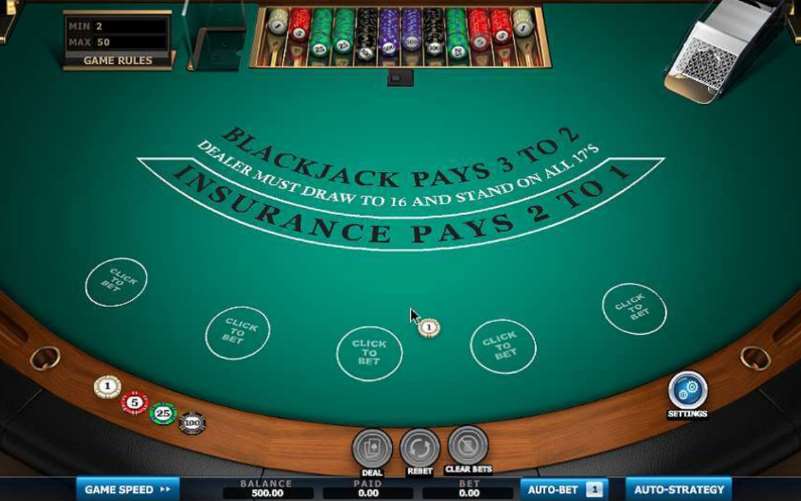
- Atlantic City Blackjack
- Cryptologic (WagerLogic)
- House Edge: 0.49%

Cryptologic’s Atlantic City Blackjack is one of the most exciting variants of blackjack in the industry. Played with 8 decks of standard playing cards, which are thoroughly shuffled by the croupier before the commencement of each hand, the variant is available in the single as well as the multi hand forms.
The value assigned to each playing card is the same as their value for other blackjack variants. While the ace can be either 1 or 11 depending on the gaming situation, the deuces to tens are taken at face value, and the picture cards are all assigned the value of 10. Cryptologic’s Atlantic City Blackjack does not offer players the option to surrender their hands to save half their bets. While the dealer is always required to stand on a soft 17, players are allowed the options of doubling down, hitting, standing, splitting, and getting insurance.
In case of a push, players get back their bet amounts; and if players get blackjack, they will get a payout of 3:2. The minimum that players can bet on Cryptologic’s Atlantic City Blackjack is $2 and the maximum is $2500, which makes it an ideal game for high rollers, mid rollers, as well as low rollers.
Players of Atlantic City Blackjack only have to beat the dealer, but without going bust, or in other words, they must ensure that their hands do not exceed the numerical value 21. The variant is based on the same rules as standard blackjack except that it permits players to split only once.
The game places before players a wide range of interesting options such as doubling, splitting, getting insurance, hitting, and standing. The variant’s doubling rules require players to double on any of their first 2 cards. Players are also allowed to double down after splitting pairs.
However, Atlantic City Blackjack allows players to split only once. If they split a pair of aces, they will receive only one extra card for each ace; and if one of them happens to be a 10, the resulting hand is considered to be 21, not blackjack. The game also permits players to place an insurance bet with a payout of 2:1 that the dealer will get blackjack.
The most delightful thing about Atlantic City Blackjack is its low house advantage of 0.49 percent, and smart players can further bend the odds in their favor by using the appropriate strategies.
There are no reviews yet. Be the first one to write one.